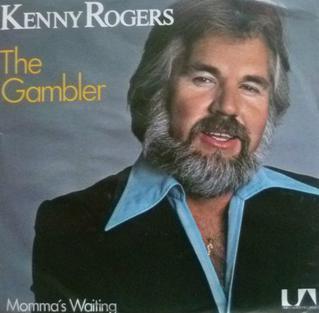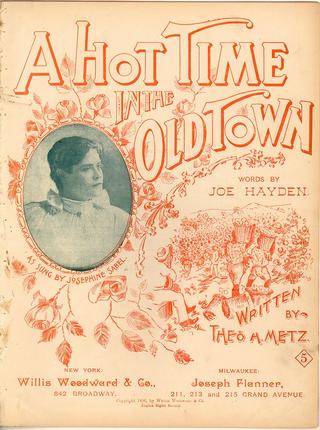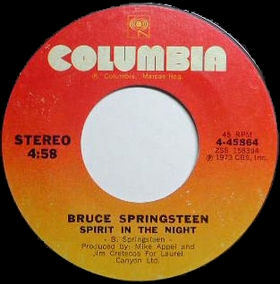
The "Battle Hymn of the Republic", also known as "Mine Eyes Have Seen the Glory" or "Glory, Glory Hallelujah" outside of the United States, is a popular American patriotic song written by the abolitionist writer Julia Ward Howe.

"Jingle Bells" is one of the best-known and most commonly sung American songs in the world. It was written by James Lord Pierpont (1822–1893) and published under the title "The One Horse Open Sleigh" in September 1857. It has been claimed that it was originally written to be sung by a Sunday school choir for Thanksgiving, or as a drinking song. Although it has no original connection to Christmas, it became associated with winter and Christmas music in the 1860s and 1870s, and it was featured in a variety of parlor song and college anthologies in the 1880s. It was first recorded in 1889 on an Edison cylinder; this recording, believed to be the first Christmas record, is lost, but an 1898 recording also from Edison Records survives.

"Goodnight, Irene" or "Irene, Goodnight," is a 20th-century American folk standard, written in 3
4 time, first recorded by American blues musician Huddie 'Lead Belly' Ledbetter in 1933. A version recorded by the Weavers was a #1 hit in 1950.
"Salad days" is a Shakespearean idiom referring to a period of carefree innocence, idealism, and pleasure associated with youth. The modern use, chiefly in the United States, describes a heyday, when a person is/was at the peak of their abilities, while not necessarily a youth.

"Mighty Bruins" is a fight song of University of California, Los Angeles sports teams. Composed by Academy Award-winning composer Bill Conti, the song was commissioned by the UCLA Alumni Association on its fiftieth anniversary. It debuted in 1984 at the football game against Stanford University, with the school marching band conducted by Conti himself.
Bruin Warriors, also known as "Sons of Westwood" and "Big C", is a fight song of the University of California, Los Angeles (UCLA). The tune comes from Big C, a school fight song for the University of California, Berkeley. The UCLA Bruin Marching Band plays the song as part of their football pregame show as they move into the script UCLA formation. The song has been updated since 2016 with the new title "Bruin Warriors", and lyrics that include "daughters" as well as "sons".
"Drunken Sailor", also known as "What Shall We Do with a/the Drunken Sailor?" or "Up She Rises", is a traditional sea shanty, listed as No. 322 in the Roud Folk Song Index. It was sung onboard sailing ships at least as early as the 1830s, and it shares its tune with the traditional Irish folk song "Óró sé do bheatha abhaile".

"The Victors" is the fight song of the University of Michigan. Michigan student Louis Elbel wrote the song in 1898 after the football team's victory over the University of Chicago, which clinched an undefeated season and the Western Conference championship.
"Deep in the Heart of Texas" is an American popular song about Texas.
Jesse James became a hero in folklore and dime novels before he was killed in 1882. A manifestation of this was the emergence of a wide body of music that celebrates or alludes to Jesse James.

"The Gambler" is a song written by Don Schlitz and recorded by several artists, most famously by American country singer Kenny Rogers.

"No Leaf Clover" is the eighth song on the live album S&M by Metallica and the San Francisco Symphony. The song was one of two new pieces completed for the band's collaboration with the San Francisco Symphony in 1999. It begins with an intro section played by the orchestra, before entering into a clean guitar part by James Hetfield. The rest of the piece alternates between clean choruses and verses backed by heavily distorted guitars. Nowadays when the song is performed live, the orchestra backing track or footage of the S&M performance is used for the orchestra intro.

"Tenting on the Old Camp Ground" was a popular song during the American Civil War. A particular favorite of enlisted men in the Union army, it was written in 1863 by Walter Kittredge and first performed in that year at Old High Rock, Lynn, Massachusetts.

"Saturday in the Park" is a song written by Robert Lamm and recorded by the group Chicago for their 1972 album Chicago V. It was very successful upon release, reaching No. 3 on the Billboard Hot 100, and became the band's highest-charting single at the time, helping lift the album to No. 1. Billboard ranked it as the No. 76 song for 1972. The single was certified Gold by the RIAA, selling over 1,000,000 units in the U.S. alone.
"Big C" is a fight song of the University of California, Berkeley. It was composed in 1913 by Harold P. Williams, with lyrics by Norman Loyall McLaren. It was written to commemorate the construction of the large concrete "C" in 1905 on the "rugged Eastern foothills" of the Berkeley campus. The song was the winning entry in the Daily Californian school song competition in 1913. Arrangements of the tune are used by other schools in the University of California system.
"I'm Looking Over a Four Leaf Clover" is a song from 1927, which was written by Mort Dixon with music by Harry M. Woods. Original recordings were made during 1927 by Nick Lucas, Ben Bernie, and Jean Goldkette.

"A Hot Time in the Old Town", also titled as "There’ll Be a Hot Time in the Old Town Tonight", is an American popular song, copyrighted and perhaps composed in 1896 by Theodore August Metz with lyrics by Joe Hayden. Metz was the band leader of the McIntyre and Heath Minstrels.

"Hail to Pitt" is the most traditional fight song of the University of Pittsburgh, which is commonly referred to as Pitt. The saying "Hail to Pitt!" is also the most traditional and commonly used slogan of the University of Pittsburgh and its athletics teams. The slogan is frequently used in promotional material, printed on merchandise and souvenirs. It was also the title of a 1982 history of Pitt athletics by author Jim O'Brien. The slogan is often used among alumni as a statement of affiliation, including as a closing signature in conversation or correspondence between alumni, and is sometime abbreviated as "HTP" or "H2P", the latter of which is a registered trademark of the university and is frequently used on official university signage and merchandise.

"Spirit in the Night" is a song written and originally recorded by American singer/songwriter Bruce Springsteen for his debut album Greetings from Asbury Park, N.J. (1973). It was also the second single released from the album. A cover version performed by Manfred Mann's Earth Band, was released on the album Nightingales and Bombers and as a Top 40 single.

"Born to Be Abramo" is a disco medley/mashup by Italian comedy rock band Elio e le Storie Tese, originally released in 1990 as a 12" maxi-single.












